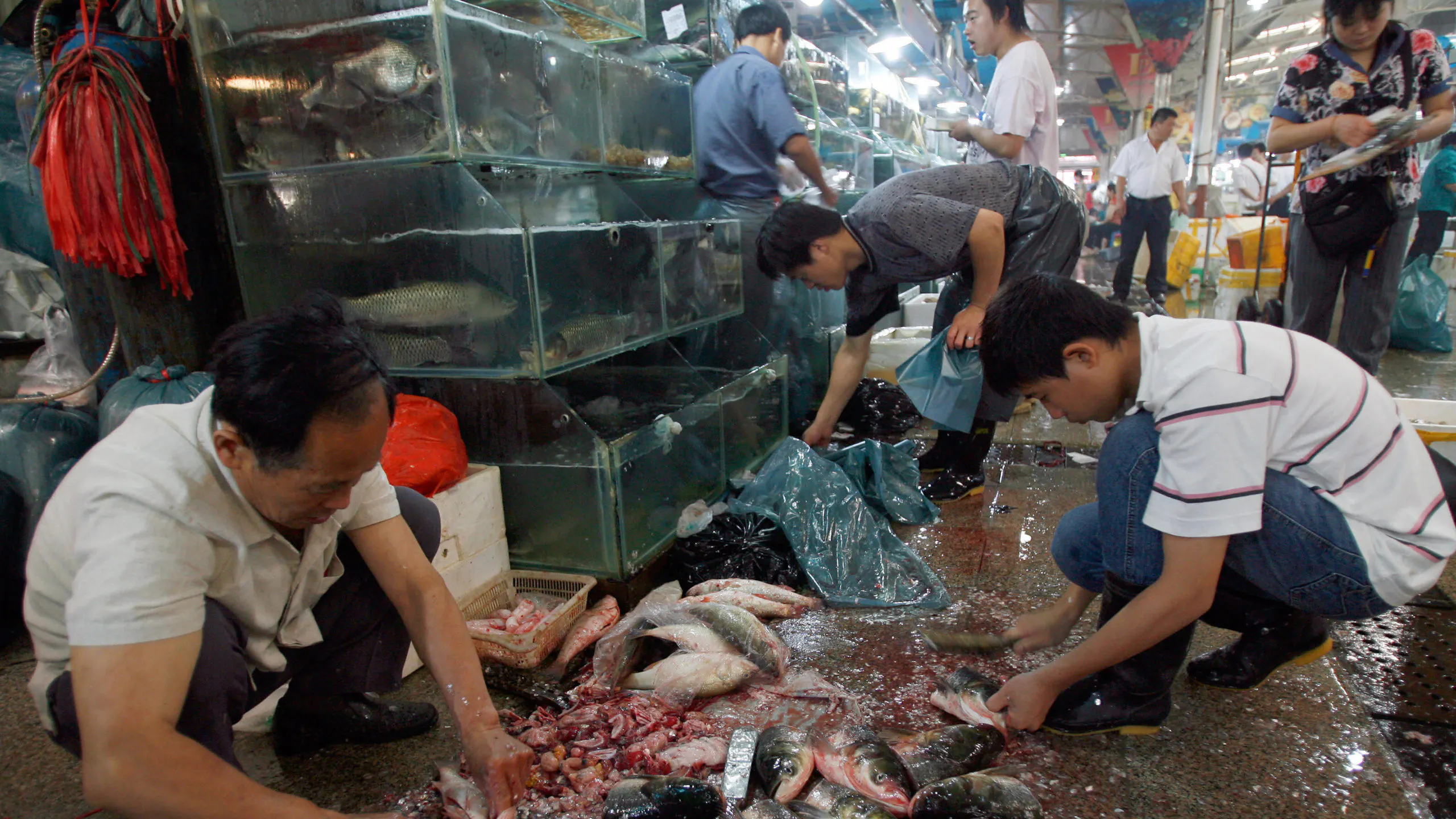Despite growing evidence that the coronavirus pandemic originated from the so-called Huanan “Wet Market” in Wuhan, China, Bloomberg News has published an astounding article titled, “China Is Reopening Its Wet Markets. That’s Good.”
As the article’s title suggests, the author, David Fickling, argues that the country’s Wet Markets should remain open, despite his acknowledgment that they “are often less than hygienic” and that they “may seem a fertile breeding ground for the virulent novel diseases that cross the species barrier to humans and occasionally become pandemics.”
In fact, the author suggests that the markets continue to survive because “consumers regard them as a healthier and more sustainable alternative” to supermarkets.
If they’re showing resilience as suppliers of fresh goods, it’s precisely because consumers regard them as a healthier and more sustainable alternative.
That perception isn’t inaccurate. The prevalence of food-borne microbial illness in developing East Asia suggests that far from being cesspits of disease, wet markets do a good job of providing households with clean, fresh produce. And while the origins of coronavirus remain obscure, they may have at least as much to do with more worldwide activities such as intensive farming as practices specific to Asia.
Later in the piece, the author likens the attraction of “Wet Markets” to the draw of American farmers markets, and suggests that the health problems associated with the markets can be addressed through “better building design.”
The attraction of wet markets isn’t so different from that of farmers’ markets in Western countries. In contrast to a supermarket model where multiple layers of retailers, wholesalers and logistics companies stand in between the consumer and the grower, wet markets offer a personal and direct connection between shopper, stallholder and farmer.
Consumers know the food is fresh because there’s generally little refrigeration, so everything must be sold on the day. If in doubt, they can ask the stallholder what’s in season and which produce is best at the moment. If they think one market looks unsanitary, they can choose to shop at another….
To the extent that the mix of the raw and the cooked in Asia’s wet markets is a health problem, it can easily be mitigated by better building design (such as separating meat, vegetable and livestock areas and keeping markets fully enclosed), plus the sort of mandated cleaning regulations found in places like Singapore, Hong Kong and South Korea.
A key distinction, of course, is that you’d be hard-pressed to find a farmers market in America where living wild animals are stacked in cages on top of domesticated farm animals, and where animal entrails are washed onto the floor of the market and allowed to mix with urine, feces, and diseases.
On Friday, Senator Linsdey Graham (R-SC) blasted China for allowing the country’s wet markets to re-open, despite the unsanitary conditions being linked to the coronavirus pandemic and the SARS outbreak of 2003.
“These wet markets in China, people eat bats and they eat monkeys, and bats and monkeys — at least bats for sure — carry this kind of virus,” Graham said Friday on Fox News. “This is where ebola came from, this is where SARS came from.”
As The Washington Post has previously reported, Dr. Anthony Fauci, the White House coronavirus expert, has called for the world to pressure China, and other nations that hold wet markets, to shut them down.
“It just boggles my mind how, when we have so many diseases that emanate out of that unusual human-animal interface, that we don’t just shut it down,” said Dr. Fauci, reports the news agency.

.png)
.png)

